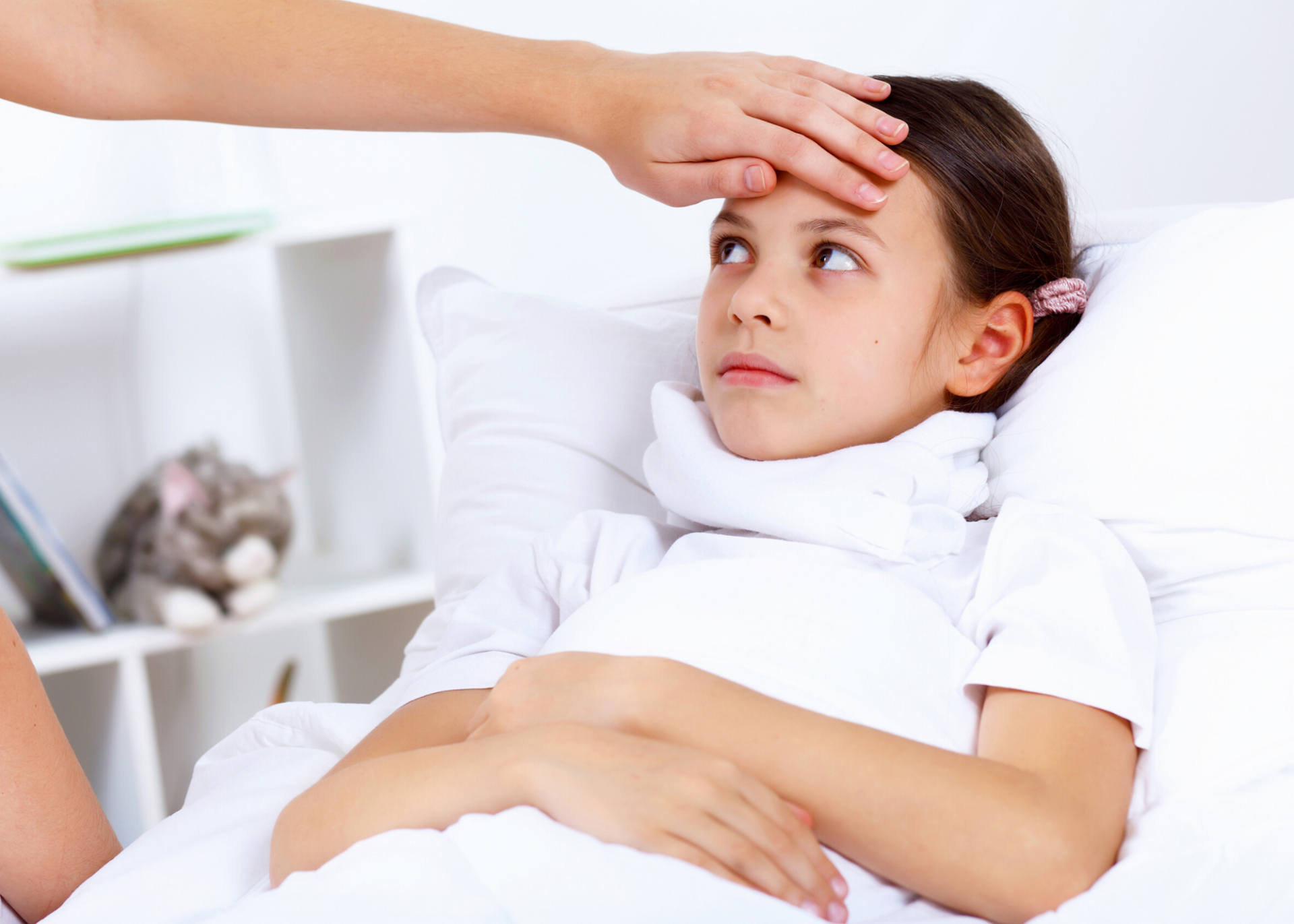
There was a different post planned for today, but, like most parents in the U.S. right now, we’ve been watching the coronavirus with a mixture of anxiety (will they close schools? will I miss work?), fear (will we contract it?), scorn (it can’t really be this big of a deal), and resignation (not much we can do anyhow). But regardless of what emotion is most prevalent, the fact is that it can not be ignored right now.
There is much media chatter about coronavirus. The world economy is rattled, the U.S. stock market tanked on Monday – all due to the virus. Everyone has an opinion on so many different aspects of this – health care for the gig economy, the government’s role and response, and even whether Corona beer is okay to drink.
Whether we look back on all of this years from now and think we overreacted, I dare not predict. But I do know it brings up a lot of messy feelings: feelings of loss of control and insecurity. And as humans we CRAVE and DEMAND control and security. It’s just how we’re wired.
Deep down, the fear response is driven fundamentally by the unavoidable realization that we don’t have the ability to control our lives, environment and what happens to us as much as we usually pretend we do. (I don’t really think anyone is afraid they are going to run out of toilet paper. It’s that stocking up on toilet paper makes us feel like we are doing something.)
We don’t like being out of control. And this is especially true, and creates uncomfortable feelings of helplessness, when it comes to parenting.
As discussed, our generation already has to parent through the Internet and a myriad of other complicated issues. And now, we are learning we have to add global pandemics to that list.
As parents, we work so hard to raise our children well (to attend to their minds and spirits) and, ultimately, to keep them safe and healthy. Safety and health are kind of our top responsibilities. But with invisible germs all over schools and kids who chew on the strings of their hoodies, how can a parent win this particular war?
Fortunately for our children, coronavirus, thus far, appears to have less demonstrated severity for kids than it does for the elderly and/or others immunocompromised. But none of us actually wants to test that with our own families and our own kids. Plus, the public dialogue right now is encouraging us, as parents, to ask the question “what if this virus was different and kids were high risk? what if?” Confronting the fact that if a pandemic were to hit, we won’t necessarily be equipped to keep our kids safe is nausea-in-the-pit-of-the-belly kind of scary. And overwhelming.
We’re walking this fine thread of trusting schools and government officials – the professionals who “know things.” We’re scared of not being able to go into work and potentially losing the money that provides healthcare and, hell, food for our trusting kids. But we also know that at the end of the day, it comes down to us as parents to make the best choices for our kids and our family unit. So when you are being smacked from all sides with conflicting information (“it’s terrible! everyone will get it! quarantine!” and “it’s not a big deal, it’s not as bad as everyone is pretending it is, damn media!”) it’s hard to feel confident in your decisions. It’s hard to know what the right choice is for the one big job we have as parents: to keep our kids healthy and safe.
We are responsible totally and completely for another human’s well being (and that human is one who can’t even remember to put socks on their feet most days and hates to brush their teeth).
I think we all understand the science that kids actually need to experience some sicknesses, illnesses and germs to build a strong and healthy immune system. But that’s not easy to grapple with when our babies have alarmingly high fevers and problems breathing. Instinctively, we desire to protect.
So how does a parent navigate all of this?
How are we supposed to chart a road through a world where pandemics are increasingly possible due to globalization? How do we deal with the idea that a nationwide, statewide, countywide quarantine could actually be a thing? No one is writing blog posts for parents on how to navigate the end of days or the zombie apocalypse (well, except this guy)…
Of course, we’re not at the end of days, nor, at least last time I checked, are the zombies coming. But I do think what we are seeing today is a test case, a scary realization of how helpless we ultimately are, and that’s why it’s rocking us. And for those of us currently in the thick of parenting, there is an entirely additional level of fear as we look at our kids across the dinner table.
Even on good days, as parents we live more or less with a constant, low-level anxiety that something catastrophic will happen to the babies we were charged to protect (“don’t jump from there,” don’t touch that boiling water,” “don’t eat the mud”). So what are we able to do for them staring down a major health crisis?
All we can do is take it one day at a time.
That’s all we can do.
We can make adjustments, maybe tighten up some household habits, model good behavior, but, other than that, my parenting tribe, there isn’t much else we can do.
I am not sure if there is freedom or terror in that realization but, ultimately, that’s the nugget.
We have to breathe into the scary unknown and simply trust ourselves (our instincts, God, Mother Earth, whatever guides us) and know that we WILL make the best choices and we WILL do the best we can, just as we always do. (Let’s say that louder for the Mama Bears in the back.)
I kiss my kids’ foreheads a lot every night before bed. And I hug them every chance I get. I remind them how precious and special they are, and I pray hard over them every single morning as they walk into school.
But, of course, and where we need to end this article, there are some tangible things we can actually do and try. Because we can make the risk a little less and keep them a little more healthy if we take some actions inside our homes. We can exhibit a little control…

Here are 10 steps we take to try to keep our kids healthy:
**None of these recommendations are meant to replace or supplant a doctor’s recommendations or assessments. If you have any concerns about your children and family, we recommend that you go immediately to a pediatrician or licensed care professional. These ten things are simply ways we can encourage and promote healthy and hygienic living.**
1. Make them shower. If your children are like ours, or the dozens of friends they have, showering is something that elicits groans and complaints (WHY IS THAT?!). But, parents, be more stubborn than they are and fight the battle. Daily showering, especially during cold/flu seasons, with soap and shampoo.
2. Enforce rest : institute a good bedtime. Rest, rest and more rest! Kids’ bodies need a lot of time to restore and they probably need more than you realize. The recommendations are 10-12 hours for 3 to 6 year-olds (that means for a 7:00 am wake up, in bed as early as 7:00 pm) and 10-11 hours for 6 to 12 year-olds (that means for a 7:00 am wake up, no later than 9:00 pm). We’ve found that while our sons may not be visibly acting tired, and certainly insisting that they are not, once they are warmly tucked into bed, they fall asleep. Our 8-year-old will, on most nights, easily and happily fall asleep by 7:30 pm (and he functions much better throughout the following day if he does)! It may take time for a new sleep routine or schedule to stick, but give it a solid try and see what happens.
3. Eat healthy. This means fruits and vegetables, less sugar, and lots of water!
4. Vitamins. (And why not elderberry syrup and JuicePlus?). We give our children vitamins, especially focusing on those with additional Vitamin C and immune boosts. But we also have done elderberry in the past, and we know a lot of people who believe in JuicePlus. While not scientifically proven to help (yet), and evidence of success is purely anecdotal, they haven’t been proven to harm, either. (We personally advocate vaccinations, of course. If we are talking protecting our children, after a lot of research and big conversations, we elected to fully vaccinate our children.)
5. Demonstrate good hand washing, “good sneezing,” and no face-touching. Yes, we can explain it to them, but we also have to show it to them! (Always the hardest part of parenting.)
6. Consider a nasal saline wash. This was totally new to me, but when I read it here, it really made sense. My ENT has had me do nasal irrigation for the past six months and it is amazing (and kind of strange) how much it helps overall health.
7. Educate them! Remember that kids aren’t deaf to public dialogue and discourse. In fact, they are usually absorbing more than we realize. But it can also be overwhelming and scary if not put into proper context. So don’t hesitate to talk to kids about public health. And don’t hesitate to go to the Internet for ideas on how to discuss health with kids if you need a starting point. (This is a powerful and wonderful way to educate children on the coronavirus, for example.)
8. Make them play outside. The health benefits of being outside are numerous. But, primarily, it increases Vitamin D, stimulates the pineal gland which in turn boosts immunity, and can encourage better sleep patterns. (In fact, parents, we should be getting outside, too?)
9. Keep them home when they are sick. It is so, so easy to send them to school, daycare, the gym child watch, etc., when they are only slightly off but not walking around with a fever. I’ve done it. Because of work, routines, demands, and so forth, it is really hard to stop everything. But (and this isn’t just a public citizenship message of “spare others”), their little bodies need to be home fighting infections and germs. They can’t do that when they are stimulated and required to be fully functional.
10. Wipe the doorknobs, light switches and toilet handles. Germs linger here more than I care to acknowledge. It doesn’t take much time to take a bleach wipe to switch plates and can go a long way to keeping a home healthy.
Again, all we can do is take one day at a time and do the best job we can. But, hopefully, these 10 easy steps can help us feel more in control.
Be healthy, friends!
Last Updated on March 11, 2020 by Mrs. Family Trip
